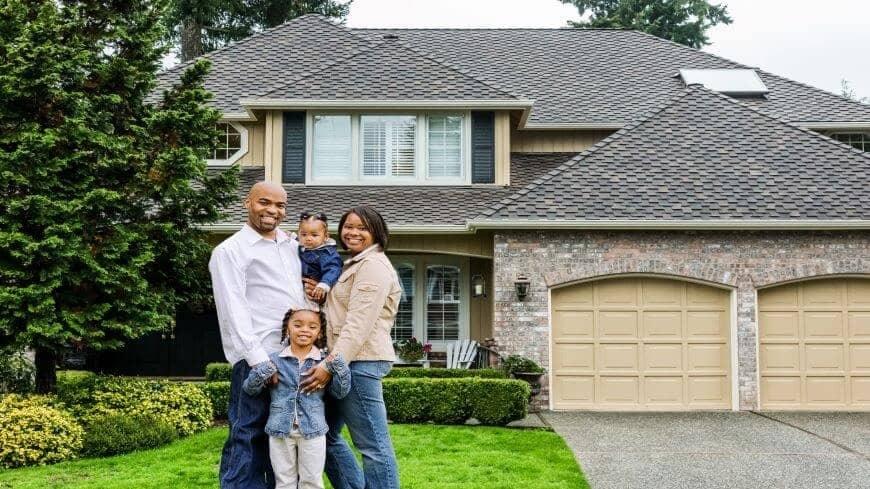How to navigate a FSBO home

In the late aughts, a couple living in the suburbs outside Boston found an envelope without a postmark in their mailbox.
Inside was a letter from a family who was looking to buy a house in the neighborhood, asking if they were interested in selling. Calls to a few neighbors confirmed that the whole cul-de-sac had received similar missives.
They later sold their home to the couple, without involving an agent on either side, which made it a for-sale-by-owner (FSBO) transaction. It’s a familiar story for many homeowners, particularly those located in desirable zip codes.
The actual percentage of U.S. homes sold without the help of an agent ultimately depends who you ask. According to real-estate listing website Redfin, in 2016, 11% of sellers chose FSBO, and another 9% only used an agent for some aspects of the process. The National Association of Realtors, on the other hand, claims that only 8% of homes sold that year were FSBO.
A for-sale-by-owner transaction can be a great deal for both buyer and seller, though primarily for the seller. Fees for the buyer’s agent and the seller’s agent typically come out to 6% of the sale price, and the seller is usually responsible for paying both.
How FSBOs are different from a typical home sale
Buying a FSBO home is a very unique experience compared with traditional real estate transactions since you’re removing listing agents from the equation. In particular, FSBOs stand out in two key areas:
- Buyer-seller communication
- Seller responsibilities
Buyer-seller communication
The buyer and the seller are in direct communication, rather than hammering out terms through a third party.
Depending on the buyer and seller involved and their negotiation and communication skills, this can be either a pro or a con. For the buyer, it makes it a lot easier to get acquainted with the home and the area from someone who knows it first hand.
Seller responsibilities
The seller is responsible for many tasks typically performed by the seller’s agent. That includes:
- Doing comp research and setting an appropriate sale price for the home. This is a place where FSBO sellers can sometimes trip up, because they unintentionally overinflate the price of their home.
- Providing a property disclosure statement, purchase contract and other sometimes complex paperwork.
- Taking photos and coordinating viewings. Taking an attractive photo requires skill, and it may benefit the seller to hire a photographer to take a few shots. They’ll have to do any staging and coordinating of viewings themselves, as well.
- Negotiating offers. The buyer and the seller will have to negotiate directly, or the seller will negotiate with the buyer’s agent.

Why you may prefer FSBO home purchases
Although FSBO home sales tend to offer more perks to the seller, both sides of the transaction can benefit from this type of home purchase.
For the buyer
Since you know the seller isn’t paying tens of thousands of dollars to cover agents’ fees, you can work that into your offer price. You also have the opportunity to build a relationship with the seller directly, which can help you come to agreeable terms.
For the seller
The biggest benefit for the seller is the reason why most FSBO sellers go that route: You don’t have to pay a broker’s fee, though you may still need to pay for the buyer’s agent if you want the home to sell more quickly.
What can make a FSBO more challenging than a typical home sale
Without the support of experienced real estate agents, both buyers and sellers may run into issues with FSBO home sales. It’s worth considering the potential challenges and drawbacks you may encounter before entering into this type of purchase — either as the buyer or seller.
For the buyer
You have to do the research to make sure that you’re making a fair offer for the home — and that you’re not overpaying. Make sure you’re looking at recent sale prices rather than listing prices when assessing the home’s fair market value. Find out the average length of time it takes houses in the area to sell, and how long this house has been on the market. Ask the seller if they listed it with an agent previously, or if it’s been FSBO from the beginning. If it’s been on the market for a while, and/or it was previously listed with an agent, the home may be overpriced.
You have to be extra vigilant to look out for any flaws in the home. Sellers are typically not real estate experts, and they can inadvertently (or purposely) obscure potentially costly issues. Just as you would with any home purchase, arrange for an appraisal and thorough home inspection to sniff out any potential defects.
If you want to tap an expert for help, you can still engage a buyer’s agent. An agent can help facilitate the negotiations and sale process and connect you with the necessary experts (appraisers, real estate lawyers, home inspectors, title insurance agents, etc.).
Typically, the seller pays for your agent’s fee, but they can refuse, in which case you either have to bail on the home or pay the fee yourself. Sometimes, buyer’s agents don’t want to work on FSBO transactions because they’re wary of ending up having to tackle the typical responsibilities of the seller’s agent without being paid for it.
For the seller
A FSBO is significantly more labor intensive than working with an agent. You have to advertise yourself, stage the home yourself, take the photos yourself, draw up the paperwork yourself, field and negotiate the offers yourself — the list goes on. Any misstep along the way could lead to a potential sale falling through and more time on the market.
The case for using a real estate attorney
Whether you’re buying or selling a FSBO home, it may be worth your while to engage a real estate attorney to negotiate the terms of the deal for you. A qualified legal professional should also be able to handle some of the details that would otherwise be done by a real estate agent. In many cases, going this route costs less in the long run while providing you with great protection from an expert who’s only looking out for your best interests.
Do FSBO homes sell for less than homes that use an agent?
There’s an oft-cited 2007 study from the National Bureau of Economic Research (likely oft-cited because it’s a rare piece of academic research on the topic) that sought to answer this exact question.
After studying home sales in the Madison, Wisconsin market, they did not find that homes sold by an agent garnered higher sale prices. And since working with an agent is costly for the seller, FSBO sellers did end up pocketing more cash. Working with an agent who listed their home on the MLS did, however, shorten the time it took to sell the home.
Food for thought for anyone — buyer or seller — considering a FSBO home.
Powered by Froala Editor




